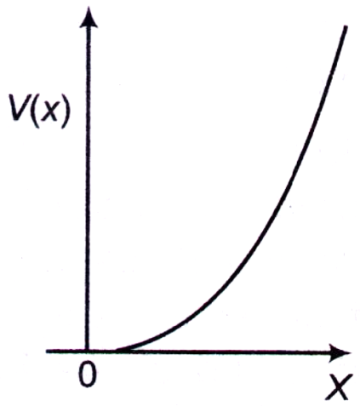61. A classical particle is moving in an external potential field V(x, y, z) which is invariant under the following infinitesimal transformations
\[\begin{array}{*{20}{c}}
{x \to x'}& = &{x + \delta x} \\
{y \to y'}& = &{y + \delta y} \\
{\left[ {\begin{array}{*{20}{c}}
x \\
y
\end{array}} \right] \to \left[ {\begin{array}{*{20}{c}}
{x'} \\
{y'}
\end{array}} \right]}& = &{{R_z}\left[ {\begin{array}{*{20}{c}}
x \\
y
\end{array}} \right]}
\end{array}\]
where, Rz is the matrix corresponding to rotation about the Z-axis. The conserved quantities are (the symbols have their usual meaning)
\[\begin{array}{*{20}{c}} {x \to x'}& = &{x + \delta x} \\ {y \to y'}& = &{y + \delta y} \\ {\left[ {\begin{array}{*{20}{c}} x \\ y \end{array}} \right] \to \left[ {\begin{array}{*{20}{c}} {x'} \\ {y'} \end{array}} \right]}& = &{{R_z}\left[ {\begin{array}{*{20}{c}} x \\ y \end{array}} \right]} \end{array}\]
where, Rz is the matrix corresponding to rotation about the Z-axis. The conserved quantities are (the symbols have their usual meaning)


